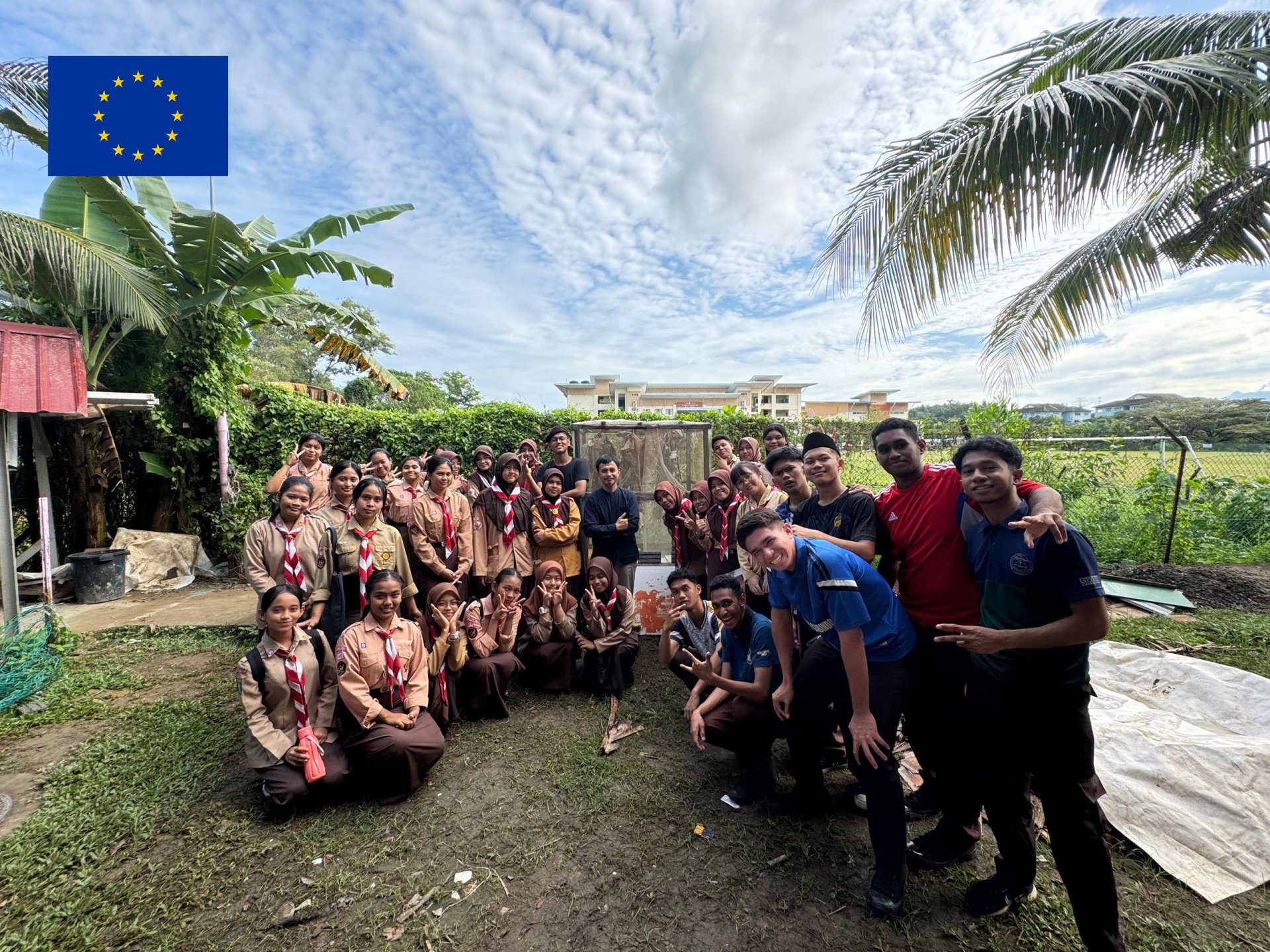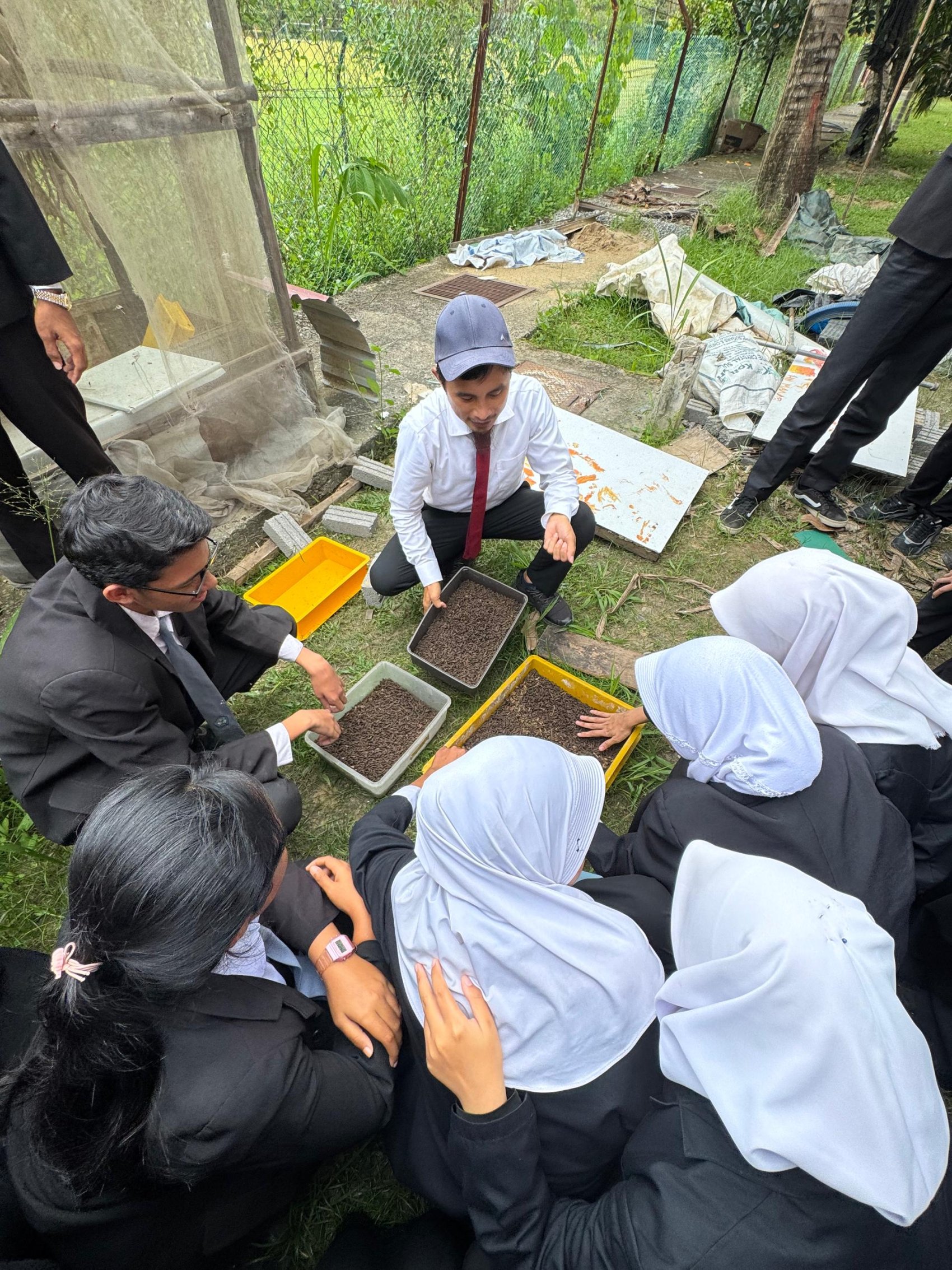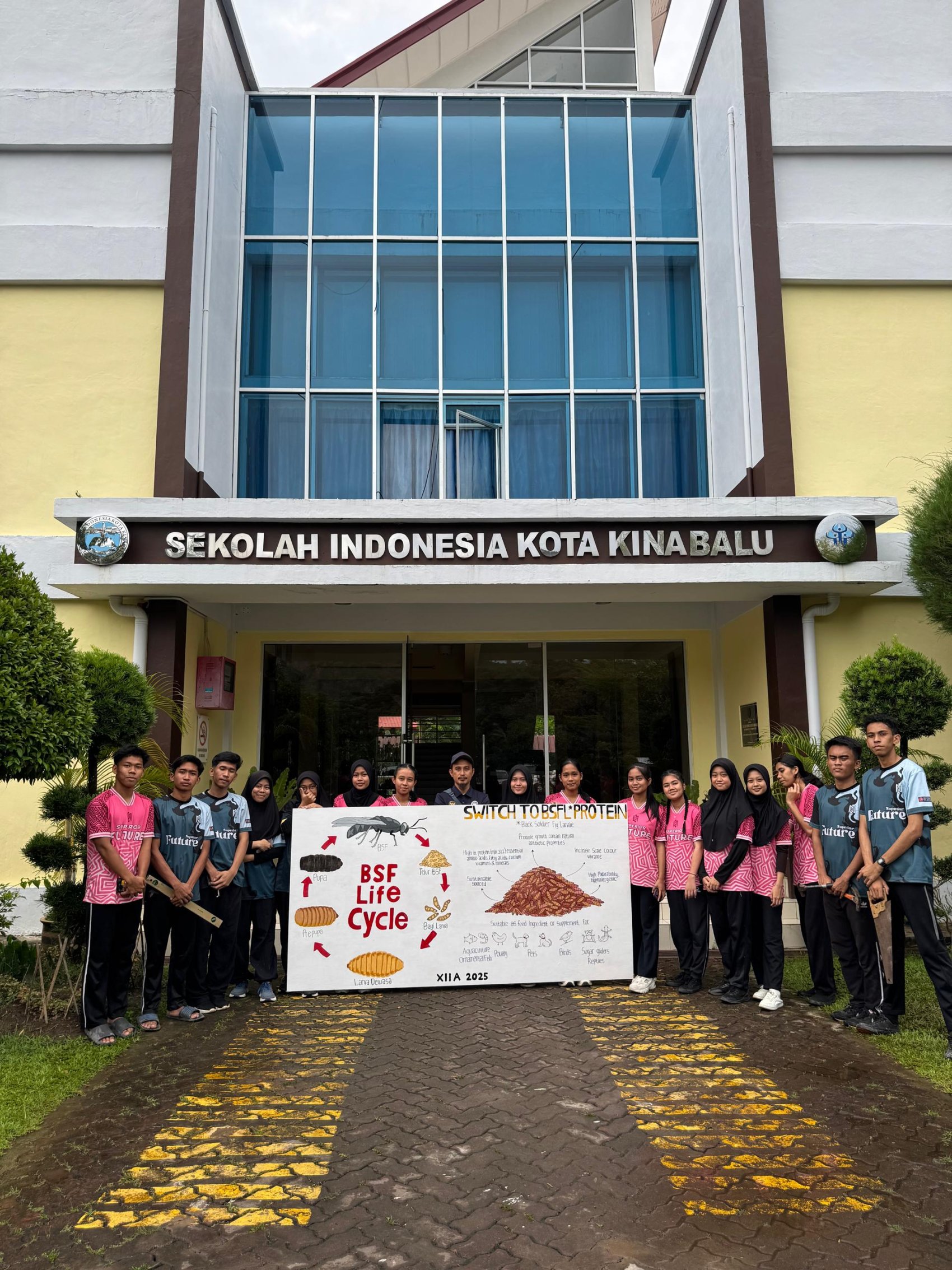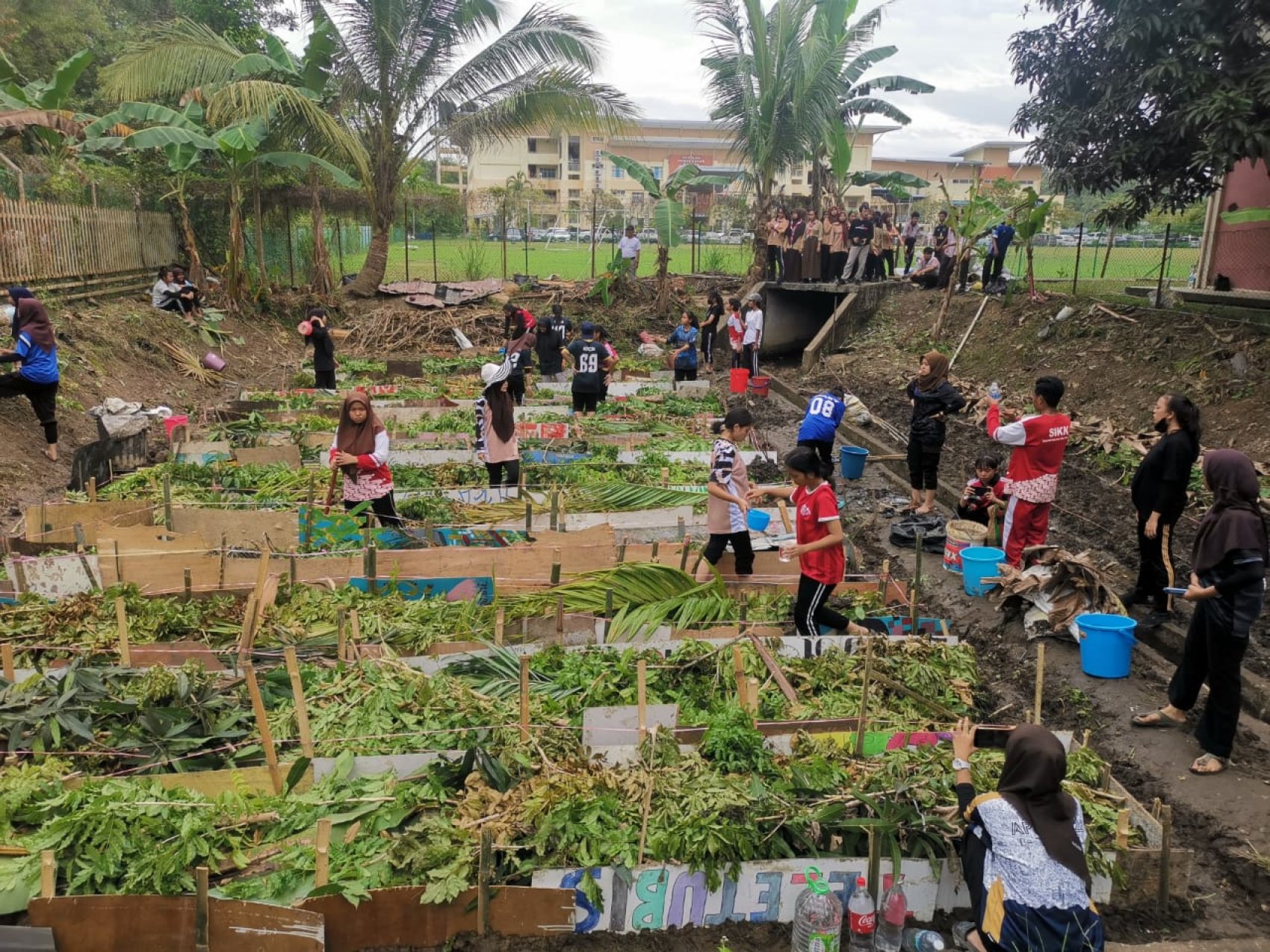
Winner of the #ForOurPlanet Award
Malaysia: Student-led circular economy project using insects to drive inclusive education
What if the fight against food waste started with a maggot – and grew into a global solution?
At Sekolah Indonesia Kota Kinabalu (SIKK) in Malaysia, students are tackling food waste and promoting the circular economy through an innovative use of the black soldier fly (BSF). This award-winning project transforms cafeteria waste into regenerative compost, protein-rich animal feed, and inclusive climate education and knowledge.
“The black soldier fly is like a machine soldier: it works fast, eats everything and transforms 5 kg of food waste in under one hour.”
– Susmin Ito, Project Field Leader
The European Training Foundation (ETF) and the European Commission, together with the European External Action Service (EEAS), are delighted to announce this initiative as the winner of the #ForOurPlanet Award 2025 for excellence in circular economy education. Read on to find out why.





